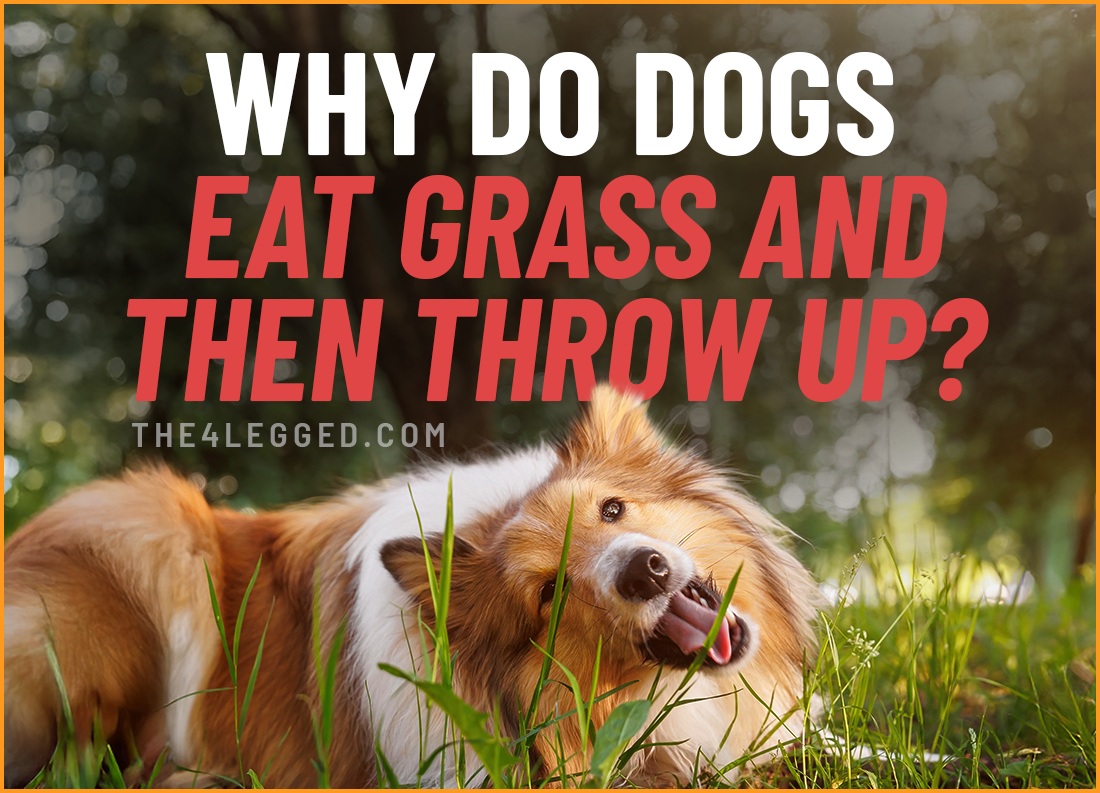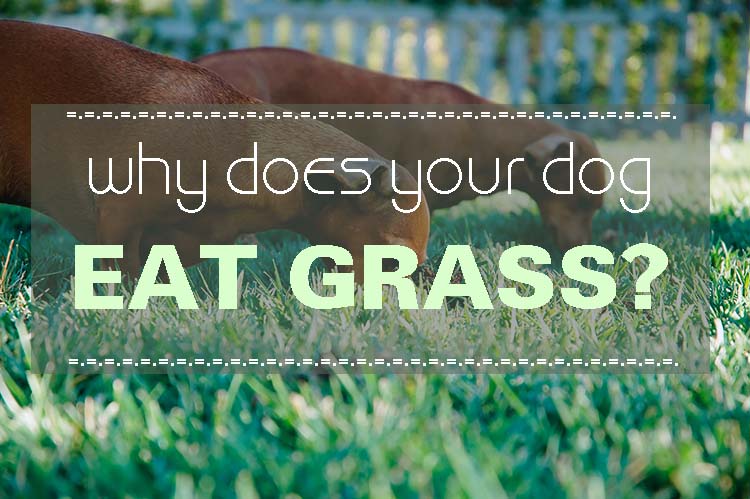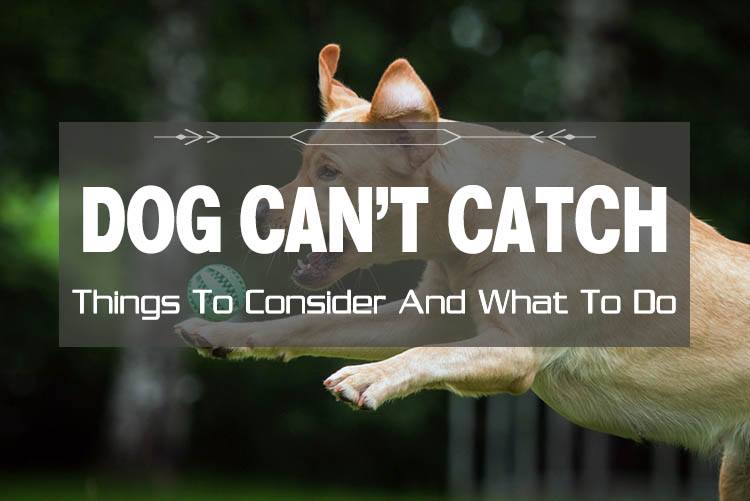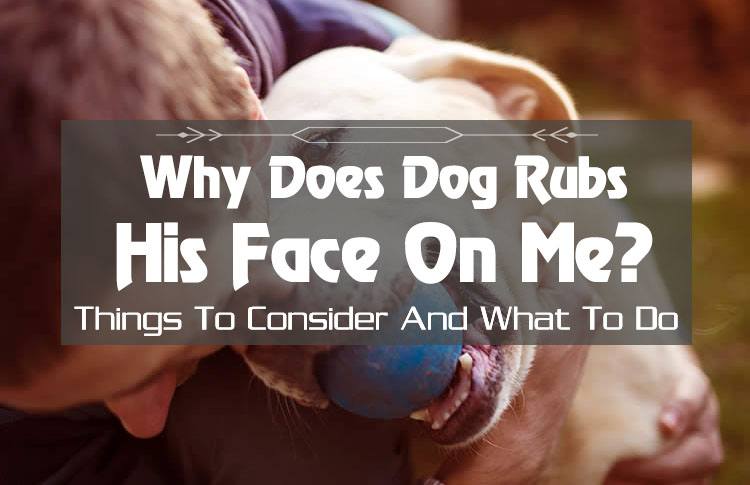Many pet parents wonder why do dogs eat grass and then throw up—a habit that can look alarming but is actually quite common. One moment your dog is happily grazing on the lawn, and the next they’re coughing or vomiting, leaving you worried and confused.
Dogs may eat grass for a variety of reasons: instinct, curiosity, a taste for the texture, or even to soothe mild stomach discomfort. In this guide, we’ll explain the most common causes, when it could signal an underlying health issue, and practical tips to help keep your pup healthy and safe.
Key Takeaways
- Dogs eat grass for various reasons, including instinctual behavior, taste preference, and boredom.
- Vomiting after eating grass can be a normal response due to stomach irritation, but persistent vomiting might indicate underlying health issues.
- Monitoring and adjusting your dog’s diet, providing mental stimulation, and using training techniques can effectively help reduce grass-eating behavior.
Common Reasons Dogs Eat Grass
Dogs eating grass is a behavior that has puzzled many dog owners. It’s not uncommon to see your dog nibbling on your lawn, and there are several reasons why they might do this. From instinctual behaviors inherited from their wild ancestors to simple boredom, the motivations behind grass eating can vary widely. This behavior is thought to be rooted in the diet of a dog’s ancestors, as wild canids and other animals often consumed plants, including grass and berries, as part of their natural diet. Like many animals, dogs may consume plants such as grass as part of their natural behavior.
Let’s explore some of the most dogs common reasons dogs indulge in this behavior.
Instinctual Behavior
Instincts play a significant role in why dogs eat grass, inherited from their wild ancestors who consumed plant material as part of their diet. In the wild, canids like wolves and foxes would eat grass and other plant matter to aid in digestion and supplement nutrients not found in meat.
This grass-eating behavior is considered normal behavior and is part of a dog’s ability to maintain its health. It helps with bodily functions and satisfies their instinctual needs. Eating grass can help dogs digest food by providing roughage or fiber, which supports their digestive system and helps with passing stool. This behavior highlights the dog’s ability to utilize grass to aid digestion. So, when you see your dog eating grass, it might just be them following an ancient and perfectly natural behavior.
Taste Preference
Dogs may consume grass because:
- They enjoy its flavor.
- Many dogs find the taste and texture of grass appealing.
- The taste preference for grass can be strong enough that even dogs with a well-balanced diet might still indulge in this habit.
This is another reason for their behavior.
Understanding this taste preference helps explain why grass-eating is such a common behavior in dogs. It’s not always about nutritional deficiencies or boredom; sometimes, dogs just enjoy the flavor and crunch of fresh grass.
Boredom
Boredom can be a significant driver behind why dogs eat grass. When dogs are left alone for long periods, they might turn to grass-eating as a form of entertainment. This behavior is particularly common in active breeds and younger dogs who require more mental and physical stimulation to stay engaged.
Anxious dogs may also eat grass as a way to cope with feelings of anxiety, loneliness, or neglect.
Engaging your dog in physical activities and providing interactive toys can help alleviate boredom and reduce grass-eating. Bored dogs are more likely to engage in grass-eating behavior as a way to pass the time, so keeping them occupied can significantly reduce this tendency.
Why Dogs Vomit After Eating Grass
Now that we’ve explored why dogs eat grass, let’s delve into why they often vomit afterward. Some pet owners notice their dog ate grass and then appeared dog sick, leading to concerns about their health. This behavior can be alarming, but understanding the reasons behind it can help alleviate some of the worry.
The fibrous nature of grass can irritate a dog’s stomach lining, leading to vomiting. Here are the main reasons why dogs vomit after eating grass.
Grass Inducing Vomiting
Grass can irritate a dog’s stomach lining, triggering the vomiting reflex. This irritation is often enough to induce vomiting, especially if consumed in large quantities. Some dogs might eat grass specifically to induce vomiting and relieve stomach discomfort.
This self-induced vomiting can be a way for dogs to clear out any indigestible material or to alleviate feelings of nausea. It’s a common behavior that can be linked to their instinctual need to manage their digestive health.
In some cases, eating grass may also help dogs pass stool by providing extra fiber, supporting healthy bowel movements.
Existing Stomach Issues
Underlying gastrointestinal issues can also lead to grass-eating and subsequent vomiting. While there is no definitive insight into how gastrointestinal upset affects grass-eating behavior, some experts believe that dogs might eat grass to help move stomach contents along.
Dogs that vomit yellow bile after eating grass might be experiencing gastric reflux or other stomach issues. These dogs often have an empty stomach, which can exacerbate the problem.
Long Grass and Gagging
Long strands of grass can provoke gagging in dogs, which may result in vomiting. The physical act of chewing and swallowing long grass strands can irritate the throat and trigger the gag reflex. This reaction is particularly common when dogs consume grass quickly or in large amounts.
The gagging and subsequent vomiting can be distressing to witness, but it’s usually a result of the physical characteristics of the grass rather than a serious medical condition.
Is Grass-Eating a Sign of Illness?
Grass-eating can sometimes be a sign of underlying health issues. While it’s a common behavior, it’s important to recognize when it might indicate a problem. If a dog shows signs of discomfort or illness after eating grass, it could be a signal of more serious health conditions. In some cases, grass-eating may indicate a medical problem such as inflammatory bowel disease or the presence of intestinal parasites, both of which require veterinary diagnosis and treatment.
Let’s explore potential health concerns linked to grass-eating.
Nutritional Deficiencies
Diet deficiencies can lead dogs to dog eat grass as they seek out additional nutrients. A lack of certain essential nutrients might prompt dogs to consume grass in an attempt to balance their diet. A nutritional deficiency in the dog’s diet could lead to grass-eating, as some dogs may seek grass to obtain an essential nutrient missing from their regular food.
A balanced diet that meets all nutritional needs can reduce the urge to eat grass. Including more fiber can address their fiber needs and decrease grass-eating behavior in various diets.
Gastrointestinal Disease
Gastrointestinal diseases can also be linked to grass-eating. Dogs with ongoing gastrointestinal problems might eat grass as a coping mechanism. Studies have compared grass-eating behavior in dogs fed different diets, suggesting a link between diet composition and gastrointestinal health. Monitoring your dog’s grass-eating behavior can provide valuable clues about their gastrointestinal health.
If you notice persistent or excessive grass-eating, it may be indicative of an underlying illness that requires veterinary consultation. It’s important to address these issues promptly to ensure your dog’s well-being.
Pica and Behavioral Issues
Pica is a behavioral disorder that is uncommon in dogs. It leads them to continuously consume non-food items. While occasional grass-eating is common, Pica can lead to more serious health problems if not addressed.
Although Pica is not common in dogs, it’s important to differentiate between normal grass-eating behavior and this disorder. If you suspect your dog has Pica, consult with a veterinarian to develop an appropriate treatment plan.
When to Worry About Your Dog Eating Grass
While grass-eating is often harmless, there are times when it can be cause for concern. Excessive grass consumption can lead to gastrointestinal distress or an upset stomach if too much grass has been eaten. Additionally, when a pet eats grass, it may indicate underlying issues that need to be addressed. Pet parents should be aware of the risks to their pets, including exposure to parasites or diseases from other dogs that may be present in the grass.
Here’s when you should worry about your dog’s grass-eating habits.
Excessive Grass Consumption
Excessive grass consumption can indicate underlying issues such as gastrointestinal diseases. If your dog frequently vomits after eating grass, it’s essential to monitor their behavior and consult with a veterinarian if necessary.
Identifying concerning behavior that may require veterinary attention is crucial. If your dog is eating grass in large quantities regularly, it’s time to seek professional advice.
Additionally, provide consistent parasite prevention for dogs that frequently eat grass to protect them from potential intestinal parasites.
Signs of Serious Medical Conditions
Persistent vomiting after eating grass may signal an underlying health concern that needs veterinary evaluation. Recognizing signs of serious medical conditions in dogs is crucial for ensuring their health and well-being.
Seek veterinary attention promptly if your dog is showing signs of persistent vomiting or other signs of illness. Early intervention can significantly address potential health issues, and veterinarians can provide the necessary care.
Safe Grass Consumption
Ensuring that the grass your dog eats is safe is essential. Grass treated with harmful chemicals can pose significant health risks. It’s generally acceptable for dogs to eat grass occasionally, but you should monitor for harmful treatments.
Allowing dogs to eat grass only on your property, where you can ensure it hasn’t been treated with pesticides or other dangerous chemicals, is a good practice. This precaution can help protect your dog from potential health hazards.
How to Stop Your Dog From Eating Grass
If you’re looking to discourage your dog from eating grass, there are several strategies you can employ. These methods can help your dog stop eating grass. From dietary adjustments to providing mental stimulation and training techniques, these methods can help curb this behavior.
Let’s explore these strategies in detail.
Dietary Adjustments
Adjusting your dog’s diet to address nutritional deficiencies and dietary deficiency can help prevent grass-eating. Ensuring that your dog receives all necessary nutrients through a balanced diet is crucial.
Adding more fiber to their diet can reduce the urge to eat grass. A well-balanced diet can significantly decrease the likelihood of your dog seeking additional nutrients from grass.
Providing Mental Stimulation
Providing mental stimulation can help reduce grass-eating behavior, especially in bored dogs. Exercise, brain-stimulating toys, and attention can all contribute to keeping your dog engaged and less likely to eat grass.
Offering toys and puzzle games is an effective way to provide mental stimulation for dogs. Redirecting your dog’s attention with toys or walks can help reduce grass-eating behavior.
Training Techniques
Training techniques can also be effective in stopping your dog from eating grass. Using positive reinforcement, such as distracting with treats or calmly interrupting and asking for an alternate behavior, can help change this habit. Frequent walks and appropriate training can address this common behavior and help your dog develop healthier habits.
Training not only helps curb grass-eating but also strengthens the bond between you and your pet pup.
Summary
Understanding why dogs eat grass and then throw up helps you separate normal grazing from signs of trouble. Most pups nibble grass out of instinct, taste preference, or simple boredom, and an occasional vomit afterward is usually harmless. But frequent grass-eating or repeated vomiting can point to nutritional gaps, stomach issues, or other health concerns.
Keep your dog safe by offering a balanced diet, plenty of mental stimulation, and regular vet checkups if the habit becomes excessive. Want more practical tips for a happy, healthy pup? Explore our full collection of dog-care and behavior guides.
Frequently Asked Questions
Why does my dog eat grass and then vomit?
It sounds like your dog eats grass to soothe some stomach discomfort, which can unfortunately end in vomiting. If it happens frequently, it might be worth a chat with your vet!
Is it normal for dogs to eat grass?
Absolutely, it’s normal for dogs to eat grass! They might do it out of instinct, simply like the taste, or even just to pass the time.
Should I be worried if my dog eats a lot of grass?
If your dog is eating a lot of grass regularly, it’s best to consult a vet, as it might signal some health concerns. Keeping an eye on their behavior can help you ensure they stay healthy.
Can eating grass be harmful to my dog?
Yes, eating grass can be harmful if it’s treated with pesticides or chemicals, so make sure your dog sticks to untreated grass for safety.
How can I stop my dog from eating grass?
To stop your dog from eating grass, try adjusting their diet, keeping them mentally stimulated, and using positive reinforcement to redirect their attention. These strategies can really help curb the behavior!




